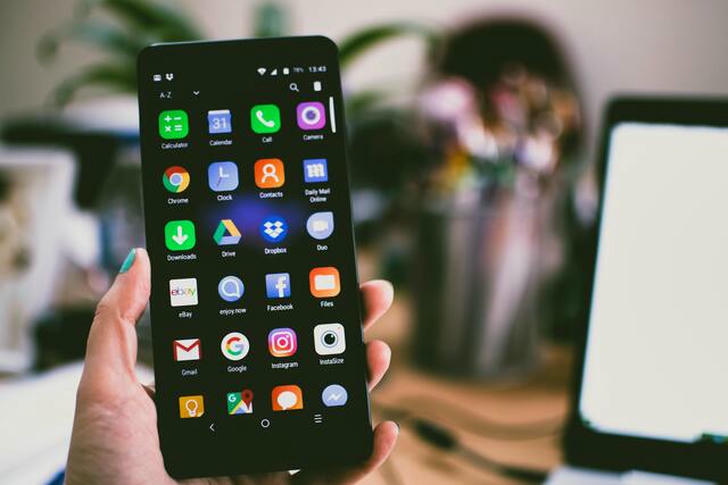Managing money as a student can be tough — with tuition, rent, groceries, and social life expenses, it’s easy to lose track. Luckily, there are great apps that make budgeting simple, help you save, and keep your finances under control. Here are the top 7 budget apps every student should download in 2025, especially if you live in the US or Canada.

📱 1. Mint — Your All-in-One Money Manager
Mint is a long-time favorite for personal finance management. It automatically connects to your bank accounts and credit cards, categorizes your expenses, and gives you a full snapshot of your financial health.
Why Students Love It:
- Real-time alerts when bills are due or you're overspending
- Budget creation tools based on your actual transactions
- Credit score tracking included
💡 Best for: Beginners who want hands-off, all-in-one tracking without fees.
🤝 2. Splitwise — Fairly Divide Shared Costs
If you live with roommates or share expenses with friends, Splitwise is a game-changer. No more awkward Venmo reminders or forgotten receipts—it tracks who owes what and settles everything transparently.
Features That Stand Out:
- Add expenses manually or scan receipts
- Works for rent, utilities, group trips, and meals
- Syncs with Venmo and PayPal for quick payments
💡 Best for: Roommates, couples, and friend groups managing shared expenses.
🇨🇦 3. KOHO — Smart Budgeting for Canadian Students
KOHO is a Canadian prepaid Visa card with a budgeting app attached. It tracks your purchases, sets spending limits, and rewards you with cashback on everyday purchases.
Perks for Students:
- No credit check required to open an account
- Earn 0.5%+ cashback on every purchase
- Real-time insights into spending categories
💡 Best for: Canadian students who want to manage spending and earn cashback without using a credit card.
🔄 4. YNAB (You Need A Budget) — Budget With Intention
YNAB is less about tracking and more about planning. It’s based on the “zero-based budgeting” method, where every dollar you earn is assigned a role—from rent to entertainment to emergency savings.
Learning Opportunities:
- Forces you to be proactive, not reactive
- Offers free budgeting workshops
- Syncs with bank accounts and imports transactions
💡 Best for: Students who want to take control and develop strong budgeting habits. (There’s a 1-year free trial for students!)
💸 5. PocketGuard — Know Your Safe-to-Spend Balance
PocketGuard helps you avoid overspending by calculating what’s “safe to spend” after factoring in bills, goals, and savings. It’s ideal if you want a daily spending limit to stick to.
What Makes It Unique:
- Detects recurring subscriptions you may have forgotten
- Shows you how much money is safe to spend after bills
- Includes a “lower your bills” feature
💡 Best for: Students who need a clear spending ceiling and want to eliminate money leaks.
✉️ 6. Goodbudget — Envelope Budgeting Reinvented
Based on the old-school envelope method, Goodbudget helps you allocate money into digital categories like groceries, transport, or entertainment. Once an envelope is empty, you stop spending from it.
Why It Works:
- Promotes intentional spending
- Great for couples or roommates budgeting together
- Doesn’t require linking to a bank account (manually input money)
💡 Best for: Those who prefer a visual, categorized approach to budgeting.
📅 7. Prism — Stay Ahead of Your Bills
If you’ve ever forgotten to pay your phone bill, Prism might be your new favorite app. It aggregates all your bills in one place, sends reminders, and even allows bill payments directly from the app.
Highlights:
- Prevents late payments and fees
- Supports over 11,000 billers
- Works with checking accounts, debit cards, and prepaid cards
💡 Best for: Students managing multiple due dates who want to keep their credit score intact.
✅ Tips for Making Budget Apps Work for You
Using the right app is only half the battle—you also need to use it consistently. Here’s how to make any budgeting app more effective:
- Link Accounts Securely: Always connect accounts using official app settings or encrypted portals.
- Set Small, Achievable Goals: Whether it’s saving $100 for textbooks or avoiding overdrafts, start simple.
- Check Your App Weekly: Spend 10 minutes every Sunday reviewing your budget and updating your categories.
- Enable Notifications: Turn on alerts for upcoming bills, low balances, or spending spikes.
- Use Student Discounts: Some premium apps (like YNAB) offer student pricing—take advantage of it.
🌟 Final Thoughts
Being a student often means making the most out of limited income—but that doesn’t mean you have to be financially stressed. These budgeting apps can help you track your money, avoid debt, and build positive financial habits that last well beyond graduation.
No app is perfect, but the best budgeting tool is the one you’ll actually use. Try one (or two) this week, and take control of your money—before your money controls you.



